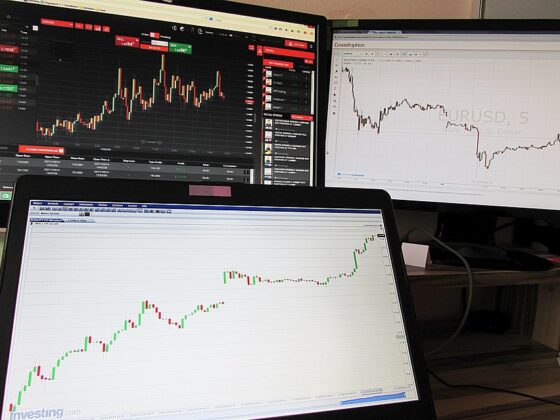Trading in the financial markets can be a highly lucrative venture for those who are willing to put in the time and effort to learn the ropes. However, for beginners, it can also be a daunting and confusing world to navigate. With the right knowledge and strategies, however, anyone can set themselves up for success in trading.
In this beginner's guide to trading, we will cover some key steps and strategies to help you get started on the right foot.
1. Educate Yourself
The first and most important step in setting yourself up for success in trading is to educate yourself. Take the time to learn the basics of trading, including how the markets work, the different types of securities you can trade, and the strategies that successful traders use.
There are numerous resources available online for learning about trading, including books, websites, and online courses. Take advantage of these resources to build a solid foundation of knowledge before diving into the markets.
2. Set Clear Goals
Before you start trading, it's important to set clear goals for yourself. What do you want to achieve through trading? Are you looking to generate additional income, save for retirement, or build wealth over the long term? By setting specific, achievable goals, you can create a roadmap for your trading journey and stay focused on what you want to accomplish.
3. Develop a Trading Plan
Once you have educated yourself and set clear goals, the next step is to develop a trading plan. Your trading plan should outline your trading strategy, including your entry and exit points, risk management strategies, and rules for trading. Having a solid trading plan in place can help you stay disciplined and avoid making impulsive decisions based on emotions.
4. Start Small
When you're just starting out in trading, it's important to start small. Begin by trading small amounts of capital to minimize your risk and gain experience without putting your financial health at stake. As you become more confident in your abilities, you can gradually increase the size of your trades.
5. Practice Patience
Trading can be a volatile and unpredictable market, and it's important to practice patience and discipline as you build your trading skills. Avoid the temptation to make impulsive trades based on emotional reactions to market movements. Stick to your trading plan and trust in your analysis to make informed decisions.
6. Monitor Your Progress
As you begin trading, it's important to monitor your progress and track your results. Keep a trading journal to record your trades, including the reasons behind each trade, your entry and exit points, and the outcome of the trade. By analyzing your trading journal regularly, you can identify patterns and trends in your trading and make adjustments to your strategies as needed.
7. Learn from Your Mistakes
No trader is perfect, and everyone makes mistakes from time to time. The key to success in trading is to learn from your mistakes and use them as opportunities for growth and improvement. Analyze your losing trades to identify what went wrong and adjust your trading strategies accordingly.
8. Stay Informed
The financial markets are constantly evolving, and it's important to stay informed about market news and developments that may impact your trading. Follow financial news outlets, read market analysis reports, and stay up to date on economic indicators that may affect the markets.
FAQs
1. What is the best way to learn about trading for beginners?
The best way to learn about trading for beginners is to educate yourself through books, online courses, and reputable websites that offer educational resources on trading. Take the time to build a solid foundation of knowledge before diving into the markets.
2. How much capital do I need to start trading?
The amount of capital you need to start trading will depend on the type of trading you want to do and your risk tolerance. It's important to start small and only trade with money you can afford to lose.
3. How can I minimize my risk in trading?
To minimize your risk in trading, it's important to practice good risk management strategies, including setting stop-loss orders, diversifying your trades, and avoiding chasing losses.
4. How long does it take to become a successful trader?
Becoming a successful trader takes time and dedication. It's important to be patient and continuously work on improving your skills and strategies to achieve success in trading.
In conclusion, setting yourself up for success in trading requires a combination of education, discipline, and patience. By following the steps and strategies outlined in this beginner's guide, you can build a solid foundation for your trading journey and increase your chances of success in the financial markets.











